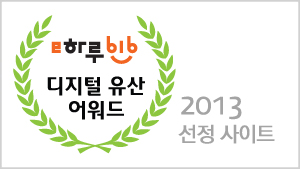한국 전통소리에는 ‘잡가’라는 하위 장르가 있다. 이 노래는 직업 소리꾼들이 불렀던, 조선 시대에 높은 인기를 구가한 대중가요였으며 현재에는 전부 12곡으로 전해져오고 있기에 이를 일컬어 ‘12잡가’라 부른다.
‘잡(雜)’은 ‘여러 가지가 마구 뒤섞인’, ‘천박한’이라는 의미를 갖지만 ‘잡가’는 그 쉽고 막된 의미와는 달리 높은 음악적 난이도 때문에 오늘날 누구도 쉽사리 접근하기 힘든 노래가 되었다. 과거 가장 낮은 층위에서 최고 인기를 끌었던 음악이 지금에는 가장 높은 층위에 머물러 쉬이 고가될 수 없는 재미없는 음악으로 여겨지는 아이러니한 상황에 처해진 셈이다.
이 맥락 안에서 이희문은 오늘날 박제되어가고 있는 ‘12잡가’가 본래 지녔던 상징, ‘미(美)’의 소생과 더불어 전혀 다른 분야(무용, 음악, 무대연출)의 마스터들에게 주문을 의뢰하여 낯설고도 실험적인 ‘12잡가’, 다채로운 ‘12개의 무대’를 구현했다. 이는 이희문의 오더메이드레퍼토리 첫 번째 장 ’잡(雜)‘이며 본 음반에는 이태원 음악감독, 음악동인고물, 소리꾼 정은혜가 함께 작업한 6곡이 수록되었다.
잡(雜), 작업 코멘트
잡가는 산문을 노래한다. 잡가는, 아직 충분히 산문도 아닌 그 산문조차, 어찌할 줄 몰라한지, 모른다. 산문의 욕망은 하고자 하는 말을, 원없이 하는 것. 말의 제한을 해제하기 시작한 그 시대는 그러나 음악의 제한을 어찌할 줄 몰랐고, 제한을 넘어선 말들은 새로운 좌표 없이, 기존 음악 안에 흩어져 박혀있다. 그 잡가 자체는, 언제든 진화할 수 있을 것이다. 다만 이 작업은, 아이가 떨어지는 눈송이들을 손바닥으로 받듯, 기존 잡가의 녹아 없어지던 말들을, 그러모으려고 했다. 말을 들으려 했고, 대꾸하려고 했고, 그 말이 말이라고 주변에 경고했고, 때론 말이 전하고자 하는 것을 다른 모양으로 미러링하며 같이 떠들곤 했다. 그러나 눈이 녹아나 물이 되어 손을 떠나게 되는 건, 우리가 알아챌 수 없을 정도의 시간만으로도, 충분하다.
Lee Heemoon’s Order-made Repertory ZAP
‘Jabga’ is a subgenre in Korean traditional music. Sung by professional singer/storyteller ‘sorikkun,’ it was a form of pop music that enjoyed massive popularity during the Joseon Dynasty, now passed down to the total 12 songs called ‘12 jabga.’
While the word ‘ZAP’ means ‘different things randomly mixed’ or ‘unsophisticated and shallow,’ jabga has now become a genre fairly hard to approach, due to its musical difficulty contrary to its literal meaning of easiness or crudeness. After enjoying the biggest popularity in the past at the lowest social stratum, at present it is in an ironical position of being at the highest, and considered boring and difficult to approach.
In this context, Lee Heemoon attempts to restore the essential significance and beauty of ‘12 jabga,’ which is becoming more and more congealed and caged, while inviting experts from completely various disciplines(dance, music, stage directing) in an order-made process to offer an unfamiliar and experimental form of ‘12 jabga,’ a colorful set of ‘12 stages.’ The result was the first chapter of Lee Heemoon’s Order-made Repertory, ‘ZAP’, and this album includes 6 songs with the collaboration with music director Lee Taewon, Music Group Gomool and sorikkun Jeong Eunhye.
‘ZAP’, statement
Jabga sings prose. And it is rather lost, somewhat clueless in terms of the ways to get around to it, to what is not even properly, sufficiently prose. The desire of prose is to say what it wants to say, without reservation. The era that started to dissolve restrictions on words, however, did not know how to deal with musical restrictions, making those word that transgressed restrictions sporadically embedded in the established music, without their new coordinates. Jabga itself would be able to evolve whenever it wants; but this project tried to scrape the words of jabga that were melting away, as if a kid trying to receive snowflakes into the hands. I tried to listen to words, tried to talk back, warned people that those are actually words, and sometimes chatted together while mirroring the words’ intentions in different shapes. But a moment that is almost unrecognizable to us is just enough, for the snowflakes to melt and leave our hands.
이희문
이희문은 방대한 레퍼토리의 보고인 경기민요(한국 경기도 지역의 토착민요)를 모티브로 장르의 융합을 시도하며 한국예술계의 변방에 놓인 전통성악을 공연의 중심으로 끌어와 자신만의 소리로 관객에게 노래를 듣는 새로운 방법을 제시하는 작업을 해오고 있다.
- 고주랑, 이춘희, 김광숙, 김호성 사사
- 국가무형문화재 제57호 경기민요 이수자
- 2010 제16회 전국민요경창대회 종합부문 대통령상 수상
- 2014 KBS 국악대상 민요상 수상
- 2015 문화예술발전유공자 포상 '오늘의 젊은 예술가상' 수상
이태원
음악동인고물 동인. 최근작으로는 영화 [만신](박찬경), [위로공단](임흥순), [노무현입니다](이창재), 연극 [단테의 신곡](한태숙), 무용 [이미아직](안애순) 등이 있다.
음악동인고물
2002년 결성 후 [가곡에 접근하는 일곱 가지 방법 - 한 노래의 삶과 죽음], [국악에 관한 세 가지 논쟁], [예쁜 백조새끼], [음악기하학의 두 가지 풀이], [국악주의자] 등 공연형 다큐멘터리(staged documentary)를 주축으로 다양한 장르에서 다양한 아티스트와 협업. 새 작품 [이희문과 언제 결별한 것인가]를 준비 중이다. ....
 ....
.... 





